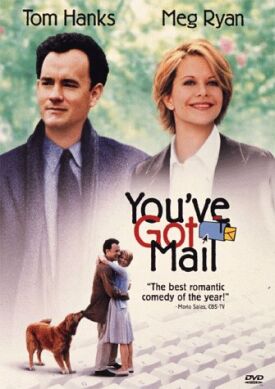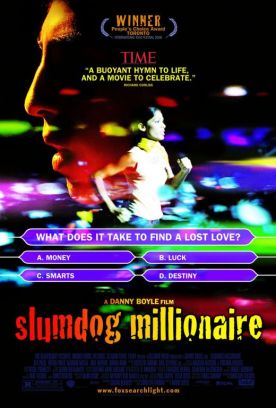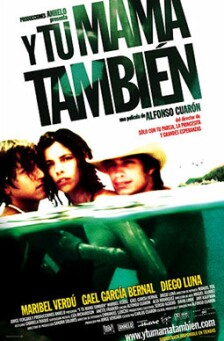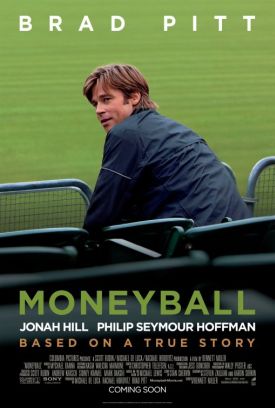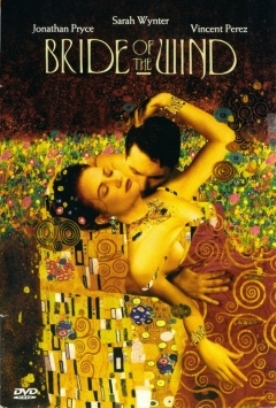You’ve Got Mail
Like the new Psycho, You’ve Got Mail makes the fundamental mistake of remaking a truly great movie instead of some second-rater that there would be some hope of improving upon. In this case, it’s true, the re-make is not a shot-by-shot imitation, but it was a bad idea to pick a movie with so much going for it as Ernst Lubitsch’s Shop Around the Corner. Nor is it the only mistake made by Nora Ephron, who directed and co-wrote the picture. Tom Hanks, I’ll admit, is not all that far off having the charm of Jimmy Stewart, but then I’ve never been a Stewartolator. In the leading role of Joe Fox (as he is called in this version of the story), he is perhaps the only one of today’s leading men who could even come close. But cute, perky Meg Ryan as Kathleen Kelly, his love interest, is just not at all up to the charm, the substance or the presence of the gloriously sexy Margaret Sullavan.
Moreover, I hope it will not be thought mere anti-technological prejudice on my part if I say that I think the idea of making the exchange of anonymous letters into an e-mail correspondence a bad one. For it was essential to the impact of Lubitsch’s film that these were little people. Everywhere we are reminded that they are little people, living their lives at the very margins of respectable existence and acutely anxious about the possibility of losing their jobs — something that would result in real want, if not actual starvation. The precariousness of their existence makes their hopes of love and human connection all the more poignant. In You’ve Got Mail the hero and heroine are spoilt yuppies, and the technological aspect to their romance only helps to underline the fact.
Not that it needs any underlining. Both Joe and Kathleen not only have all the comforts that the Upper West Side has to offer, but they are already living with other people, Patricia (Parker Posy) and Frank (Greg Kinnear) respectively. Their meeting in an on-line chat room is as casual as if they had simply taken a fancy to each other in a singles bar. Thus we never have the feeling — how could we? — that anything very much is at stake in their lives or in their relationship. Sure, it will be great if they get together, just as it would be great if the comely Kathleen’s independent bookshop (the inside joke here is that it is called “The Shop Around the Corner”) could stay open in the face of competition from Joe’s family’s superstore. But if it doesn’t, no one supposes that anything very bad will happen.
As if to reinforce our sense of too little being at stake, the movie is full of Seinfeldian observations about books, the characters’ love of New York, Starbucks Coffee (said, if you can believe it, to be the means by which people are “defining their sense of self”) and so on. We cannot imagine James Stewart and Margaret Sullavan in The Shop Around the Corner founding their epistolary friendship on how much they both love living in Budapest. The very idea is ridiculous. “Shopgirl” writes to “NY152” that “I lead a small life,” but the real problem is that it is not nearly small enough. In fact, New York belongs to her. And of course to Joe. They both obviously do love living there because the city has been built for them and people just like them. A number of scenes in places like Zabar’s or Starbucks serve to underline the fact. The trouble is that when you own a city like New York, it is hard to make people believe that one other human being is as important to you as the romantic premiss requires her, or him, to be.
But though we may agree that it would be much better if, like Lubitch’s people, Joe and Kathleen had been truly small, and at the mercy of their city and their employer and the fates themselves, craving a refuge from the uncaring world in one another’s arms, we cannot really be too hard on Miss Ephron for not setting things up like that. In the Fat City of 1990s America, it would hardly be believable anyway. Not for the first time we are driven to conclude that, if human misfortune and misery is the artist’s opportunity, the reverse also applies. Even comedy can hardly survive too much happiness, and perhaps the most striking thing about You’ve Got Mail is not its deficiencies of artistic conception but its deficiency of laughs.
Even this may thus be put down to the recalcitrance of the material, but I would like to take my own opportunity to protest against one thing that clearly is the filmmakers’ fault, namely the obtrustive use of music on the soundtrack — to the point where the dialogue is actually drowned out by it. Fifties hits like “Rockin’ Robin” or “Splish Splash” or “Dream” are supposed to put us in a romantic mood, I guess, when the movie itself is hard put to it to do so. In fact, the soundtrack album seems to be getting more of a marketing push than the movie itself is. But the music is more a distraction than it is a complement to the action. And to have the final clinch happen to “Somewhere Over the Rainbow” — well really! Talk about a remake! If you’re looking for a Christmas movie this year, stay home and watch the original, the real, Shop Around the Corner on video. You won’t be disappointed.
Discover more from James Bowman
Subscribe to get the latest posts to your email.

